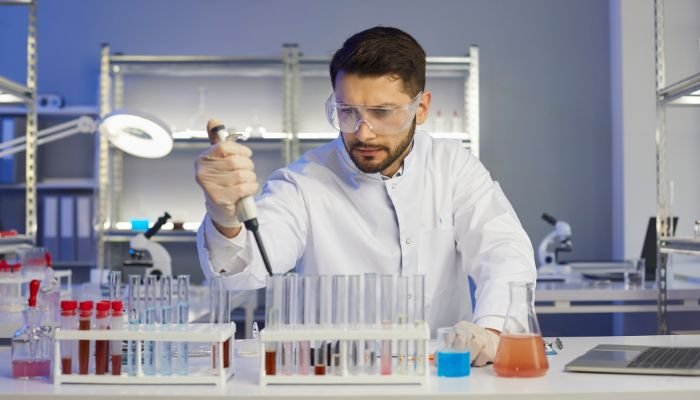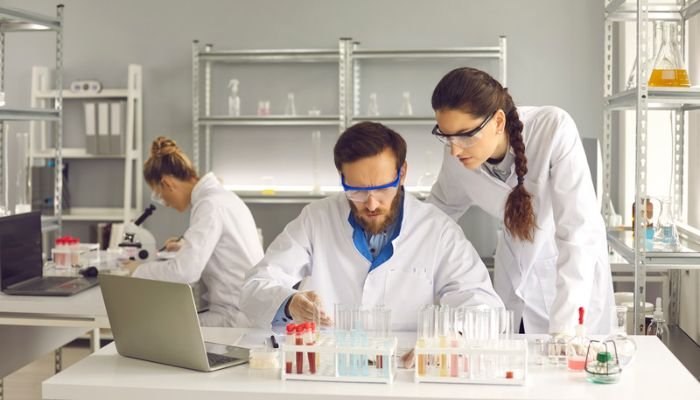The intersection of pharmacy and technology presents a plethora of opportunities for B.Pharm graduates. As the health tech sector rapidly evolves, innovative startups are reshaping healthcare delivery, patient management, and pharmaceutical services. B.Pharm graduates, with their deep understanding of pharmaceuticals and healthcare systems, are well-positioned to leverage these opportunities. This detailed article explores various startup opportunities for B.Pharm graduates in the health tech sector.
1. Telepharmacy Services

Telepharmacy is revolutionizing access to pharmaceutical care, especially in remote and underserved areas. B.Pharm graduates can establish telepharmacy startups that offer virtual consultations, medication therapy management, and prescription delivery services. These services ensure that patients receive timely pharmaceutical care without the need to visit physical pharmacies. Key features of telepharmacy services include:
- Virtual Consultations: Providing patients with access to pharmacists through video calls.
- Medication Therapy Management: Helping patients manage their medications effectively.
- Prescription Delivery: Ensuring that patients receive their medications at their doorstep.
2. Pharmaceutical E-commerce Platforms
With the rise of online shopping, pharmaceutical e-commerce platforms are becoming increasingly popular. B.Pharma graduates can create startups that sell medications, health supplements, and medical devices online. These platforms can offer personalized services, such as automatic prescription refills and home delivery, enhancing patient convenience and adherence to medication regimens. Benefits of pharmaceutical e-commerce platforms include:
- Wide Product Range: Offering a variety of pharmaceutical products online.
- Personalized Services: Providing tailored services to meet individual patient needs.
- Convenient Access: Enabling patients to purchase medications from the comfort of their homes.
3. Medication Adherence Solutions

Non-adherence to prescribed medications is a significant challenge in healthcare. Startups focused on developing digital solutions for medication adherence, such as mobile apps and smart pill dispensers, can help patients adhere to their medication schedules. B.Pharm graduates can design these solutions to provide reminders, track medication usage, and offer educational content to improve adherence rates. Features of medication adherence solutions include:
- Reminders and Alerts: Sending notifications to patients to take their medications on time.
- Usage Tracking: Monitoring patient compliance with prescribed medication regimens.
- Educational Content: Providing information to help patients understand the importance of adherence.
4. Health Data Analytics and AI
B.Pharm graduates with an interest in data science can venture into health data analytics. Startups in this field can analyze patient data to identify trends, predict disease outbreaks, and improve treatment outcomes. By integrating artificial intelligence (AI), these startups can develop predictive models that assist healthcare providers in making data-driven decisions. Applications of health data analytics include:
- Predictive Modeling: Using AI to forecast health trends and outcomes.
- Personalized Treatment Plans: Tailoring treatments based on data insights.
- Operational Efficiency: Enhancing healthcare delivery through data-driven strategies.
5. Personalized Medicine Platforms
Personalized medicine tailors treatment plans based on individual genetic profiles. B.Pharm graduates can create startups that offer genetic testing and analysis services to customize medication therapies. These platforms can collaborate with healthcare providers to develop personalized treatment plans that optimize efficacy and minimize adverse effects. Key aspects of personalized medicine platforms include:
- Genetic Testing: Analyzing patient DNA to inform treatment decisions.
- Custom Medication Plans: Designing therapies that suit individual genetic profiles.
- Collaborative Care: Working with healthcare providers to implement personalized treatments.
6. Mobile Health (mHealth) Applications
Mobile health (mHealth) applications are transforming the way patients manage their health. B.Pharm graduates can develop mHealth apps that provide drug information, track health metrics, and offer virtual consultations. These apps can empower patients to take control of their health and make informed decisions about their treatment options. Features of mHealth applications include:
- Health Monitoring: Tracking vital signs and health metrics.
- Drug Information: Offering detailed information about medications.
- Virtual Consultations: Connecting patients with healthcare professionals via mobile devices.
7. Clinical Trial Management Solutions

Managing clinical trials involves complex processes and strict regulatory compliance. B.Pharma graduates can develop clinical trial management solutions that streamline the entire process, from patient recruitment to data collection and analysis. These solutions can improve efficiency, reduce costs, and accelerate the development of new drugs. Key components of clinical trial management solutions include:
- Patient Recruitment: Identifying and enrolling suitable trial participants.
- Data Management: Collecting and analyzing trial data efficiently.
- Regulatory Compliance: Ensuring adherence to clinical trial regulations.
8. Pharmacovigilance and Drug Safety Platforms
Ensuring drug safety is a critical aspect of pharmaceutical care. Startups focused on pharmacovigilance can develop platforms to monitor, report, and analyze adverse drug reactions. B.Pharm graduates can offer services that help pharmaceutical companies comply with regulatory requirements and enhance patient safety. Features of pharmacovigilance platforms include:
- Adverse Event Reporting: Tracking and documenting adverse drug reactions.
- Safety Analysis: Assessing the safety profiles of medications.
- Regulatory Support: Helping companies meet pharmacovigilance regulations.
9. Nutraceutical and Wellness Products
The demand for nutraceuticals and wellness products is growing rapidly. B.Pharma graduates can create startups that develop and market health supplements, functional foods, and wellness products. These startups can leverage the graduates’ expertise in formulation and quality control to offer high-quality, evidence-based products. Benefits of nutraceutical and wellness startups include:
- Innovative Products: Developing new and effective health supplements.
- Quality Assurance: Ensuring products meet high standards of safety and efficacy.
- Market Growth: Capitalizing on the increasing demand for wellness products.
10. Blockchain Solutions for Pharmaceutical Supply Chain
Blockchain technology offers transparency and security in supply chain management. B.Pharm graduates can develop blockchain-based solutions to track and authenticate pharmaceutical products, reducing the risk of counterfeit drugs. These solutions can enhance trust and safety in the pharmaceutical supply chain. Advantages of blockchain in the pharmaceutical supply chain include:
- Traceability: Tracking the journey of pharmaceutical products from manufacturer to consumer.
- Security: Preventing tampering and ensuring product authenticity.
- Efficiency: Streamlining supply chain operations and reducing costs.
Conclusion
The health tech sector offers a dynamic and innovative landscape for B.Pharma graduates to explore startup opportunities. By combining their pharmaceutical knowledge with technological advancements, B.Pharma graduates can create impactful solutions that address critical challenges in healthcare. Whether through telepharmacy, e-commerce, personalized medicine, or blockchain technology, the possibilities are vast and promising. Embracing these opportunities can lead to successful entrepreneurial ventures and contribute significantly to the advancement of healthcare.












